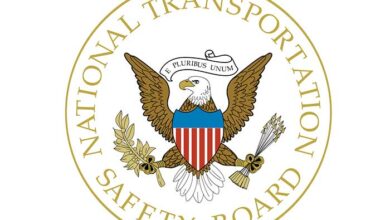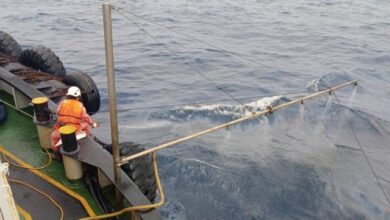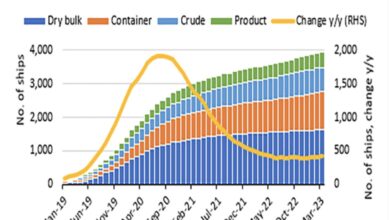Unregistered Crewing Agencies in India: A report by ISWAN South Asia

In recent years, the Indian shipping industry has witnessed a massive inflow of seafarers due to an increase in the number of training institutes across the country. However, not all seafarers are able to board ships due to an imbalance in the demand and supply of seafarers
Some fraudulent crewing agents are taking advantage of this as an opportunity to exploit the young budding seafarers who are desperate to join a ship in order to complete their sea time and progress in their dream career at sea

The Directorate General of Shipping’s advisory (5 of 2020) to all RPSL holders regarding the demand of remuneration, donation or fees from seafarers for their employment .
ISWAN South Asia has come across 114 seafarers from August 2020 to January 2021 where agents have charged hundreds and thousands of rupees as service charges from the seafarers and then disappeared with the money
We try to understand how difficult it can be for seafarers who get trapped in this loop to endure the losses they have incurred, and who often end up spending months chasing after the agents for their hard-earned money. In most cases, agents force seafarers to sign a contract that does not comply with the requirements of the MLC and, after flying to the destination, the seafarers are forced to work on some other vessel.
In most cases, these vessels are in a bad state without proper supplies and uninhabitable conditions. It has been reported in a number of cases that these seafarers get abandoned on such vessels for months without any payment and it becomes very stressful situation where the agents turn off their phones after the seafarers join a vessel and refuse to take responsibility for the wages and their sign-off.
Before we move forward, it is important to understand the disadvantages that a seafarer might experience if they choose to join ship through an unregistered crewing agent. The Directorate General of Shipping in India (DG Shipping, or DGS) has published a notice (pictured) regarding the rise in the number of complaints received against unauthorised recruitment and placement agents. The common problems reported by seafarers are:


- In an event of seafarers meeting with an accident, injury, stranding or any other mishap, the unauthorised agencies do not provide any kind of assistance for repatriation / medical aid / compensation, etc.
- Such unauthorised agencies do not provide assistance or make intervention in disputes regarding wages/compensation, arising between the seafarers and the foreign flag ship owners
- In case of demise of the seafarer, unauthorised agencies avoid taking up responsibility of bringing mortal remains or arranging compensation
- Sea service through an unregistered agency cannot be uploaded in the e-governance system of DGS and therefore will not be considered by the DGS for examination/ certification
In all the above-mentioned complaints, it becomes difficult for DG Shipping to directly take up the matter with the foreign flag ships, as they do not come under its jurisdictional control.

It is very important for young seafarers to understand the difference between an unregistered agent and an RPSL agent. RPSL stands for the Recruitment and Placement Services License issued to approved Recruiters and Agents by DG Shipping.
The licence provides security for Indian seafarers serving on Indian and foreign vessels, along with essential guarantees of repatriation in the event of abandonment. And even though fraudulent agents nowadays are pretty good at impersonating RPSL holders, there are still some ways for seafarers to identify and report such agents:
- Check for genuine RPSL licence: Make sure you ask for the RPSL number of the agent and check it on the DG Shipping website before signing any contract with the agent. In many cases, agents make excuses that their licence is being renewed, but you should not fall into their traps.
- Mode of communication: Always pay attention to the mode of communication used by the agent as a professional agent will always use their official email ID and the phone number that can be tracked. If an agent is calling you from different numbers, contacting you through social media platforms or using their personal email address, please be aware of any fraud.
- Contract: The contracts offered by such agents do not comply with the MLC requirements and we advise that you read the contract thoroughly before signing it. A good contract would clear things such as vessel name, owner and capacity, wages, leave, termination, hours of work, health and safety benefits, repatriation conditions, complaints and disciplinary procedures. You should ask as many questions as possible in order to get a better view of the work and its conditions.
- Placement/Service charges: As per the MLC 2006 requirements and DG Shipping’s Circular 5 of 2020, it is illegal to charge and pay for work at sea. A fraud agent will demand money in the name of ‘Administration’, ‘Facilitation’ or ‘Service’ charges, but we advise you to refrain from paying any money. If a registered manning agent asks for money, you should immediately report it to DG Shipping for fraudulent practices.
- Research: You should consult your friends or gather information from different sources about the agent. There are a range of help groups for seafarers on Facebook and WhatsApp where you can inquire about the agents and check for feedback. You can also visit your local police station to find out about any ongoing complaints against the agent.
When asked too many questions, the fraudulent agent may behave rudely and divert the subject to conceal his real intention. No matter how hard this process may seem, it is very important for seafarers to check the legitimacy of the agent for their own wellbeing.
A full list of registered crewing agencies in India is available at bit.ly/rpslagencies.
If someone has already suffered the repercussions of joining a ship through an unregistered agent and faced issues such as abandonment and loss of wages, the chances of justice are slim, but not nil.
ISWAN South Asia, with the help of Gujarat Maritime University (GMU), organised a webinar to assist seafarers with legal concerns regarding their cases. Most of the seafarers were facing issues with delayed payment, had been duped by fraudulent agents and had contractual issues.
The esteemed professors from GMU guided the seafarers by informing them of what they are entitled to as per their contractual agreements and the actions they can initiate to further help them resolve their issues. Later, they also conducted an interactive session so the seafarers could ask question to help them understand their rights and entitlements under the MLC, 2006.
The senior representatives from GMU informed the seafarers on filing a Zero FIR, which means that an FIR can be filed in any police station across India (i.e. irrespective of the place of residence of particular crewing agent/agency) and this can be later transferred to the appropriate police station with competent jurisdiction after investigation.
They also briefed the seafarers on how to initiate the process of filing a complaint through the judicial magistrate, if they are unable to register a police complaint due to various issues. In such cases, the hon’ble magistrate may direct the police to register an FIR after hearing the seafarer’s plea.
The seafarers were also informed that they could register a lawsuit before the Civil Court for unpaid wages and that they would have to hire a lawyer to represent their case. By following these steps, a seafarer can notify the authorities of the fraudulent activities of such crewing agents and may further be assisted in the quest for justice.













